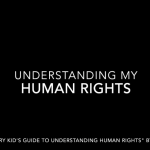![By Ronald Saunders from Warrington, UK (Empty Playgrounds 2. Cheshire UK.) [CC BY-SA 2.0 (http://creativecommons.org/licenses/by-sa/2.0)], via Wikimedia Commons](https://wp-media.patheos.com/blogs/sites/648/2016/03/empty-playground-300x200.jpg)
Jesus said, “Let the little children come to me, and do not hinder them, for the kingdom of heaven belongs to such as these. (Matt: 19:14)
As followers of Christ it’s clear that Jesus wants us to create environments that are welcoming, accepting, and safe for children. But while we may agree with this sentiment theologically, it’s much harder to do on a practical level.
Christ-followers should pursue this ideal no matter how absurd or illogical it may seem, because the reality is our communities, societies, and nations are apathetically allowing children to succumb to sickness, poverty, starvation, abuse, neglect, war, violence, exploitation, trauma, and death—all under the guise of foreign policy, economic stability, and national security.
So while we admire Jesus for offhandedly making a cute remark about how it’s OK for children to interact with Him, we simultaneously don’t want to accept refugee children within our borders.
And while many Christian American parents participate in the weekly emotional ceremony of dropping their children off for Sunday school classes and at the church nursery—causing many of them to cry in heartbreaking agony as their parents trudge off to participate in the service—immigrant children scream as government agents arrest, detain, process, and ultimately deport their siblings, parents, and themselves away from their homes.
And while we preach that God loves everyone equally, in the United States not all children are treated equally, and children of color and minorities will continue to be alienated, discriminated against, incarcerated, stereotyped, judged, and abused at disproportionally higher rates than others.
And while we praise our land as being a religious sanctuary of peace and opportunity, we continue to allow hateful rhetoric to be propagated against our Muslim neighbors, classmates, coworkers, and communities—and against their children.
And while we laud the value of hard work and the ideals of capitalism, we disregard the reality of income inequality and systemic corruption, ignoring the fact the millions of children are poor, hungry, and at a disadvantage—and will probably remain so for the rest of their lives.
And while we applaud ourselves as being wealthier and more economically stable than third-world countries around the globe, children desperately wait in overcrowded foster care systems—where an epidemic continues to go largely unnoticed.
And while we champion human rights we also turn a blind eye to the child sex trafficking happening within our own backyards.
And while we consider ourselves to be a modern and progressive culture, we still allow institutions and communities to denigrate people—and children—based on their gender, race, socioeconomic status, and their physical and mental attributes.
As followers of Jesus we should desire for every child to belong in our communities. To be safe, accepted, and loved. Because right now not all children do belong, and many are being forcefully and intentionally kept out.
We don’t want them—those particular children—in our kingdoms. For the sake of our comfort, wealth, security, time, pride, fame, and our own reputations we will willingly sacrifice these children…immigrants…refugees…humans…aliens…beings…populations…numbers…data…
For the sake of security we’ll keep them locked out, on the edge of starvation and living in desolation.
For the sake of wealth we’ll deport them back to war-torn and violent areas, where they’ll surely struggle to survive in a constant state of poverty.
For the sake of comfort we’ll refuse to provide public aid to them as their parents go from homeless shelter to shelter—transiently eking out an existence.
For the sake of time we’ll not interrupt our career, routine, and life to relationally help a child in need. For the sake of convenience we won’t entertain the possibility of adopting or fostering a child who is just waiting to be loved—who may go on waiting forever.
For the sake of our reputations we won’t allow our children to interact with those particular children or attend a school in that particular neighborhood.
For the sake of fame we’ll gleefully vilify an entire people group based on their religion, beliefs, or place of origin.
For the sake of pride we’ll refuse to admit to committing any of these previous evils, and we may even justify them to make ourselves feel better (or because we don’t want to feel guilty about supporting our preferred politician, policy, or opinion).
But what will we do for the sake of the children?
Jesus understands that everyone is loved and created in God’s image, but He makes a special point to intervene on the behalf of children everywhere. Because if God doesn’t do it, who will? Children don’t wield political power, flaunt military might, or hold any relational influence. In a world full of competing noise, they often don’t have a voice at all.
Jesus calls us to let the children come to Him. So how are we doing? Are we helping or hurting them?
The point is, while followers of Christ are called to love the world around them, it’s easy to get distracted by our enemies, or by the “adults” who seemingly run the world—the governments, banks, armies, and religions. But today, through the Spirit of Jesus, let’s start working on behalf of the children, creating a kingdom for them to be truly loved and accepted in. God help us.
















